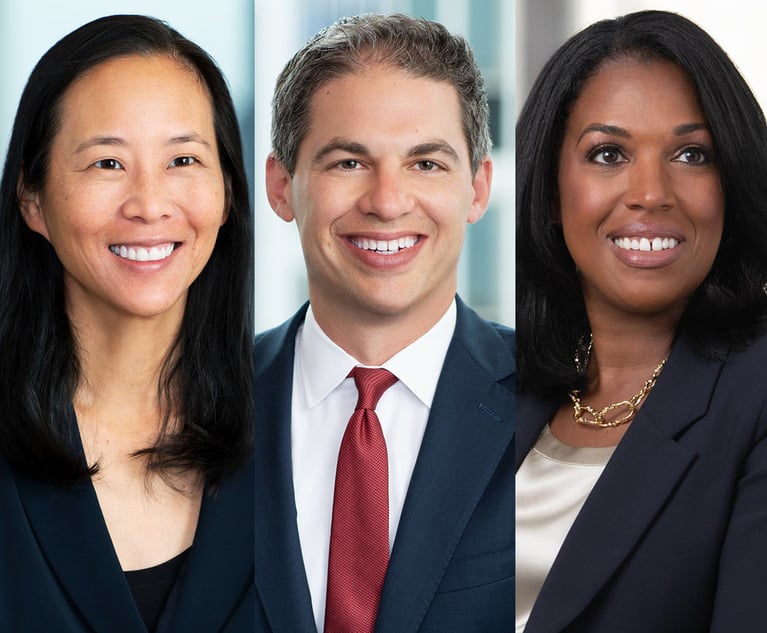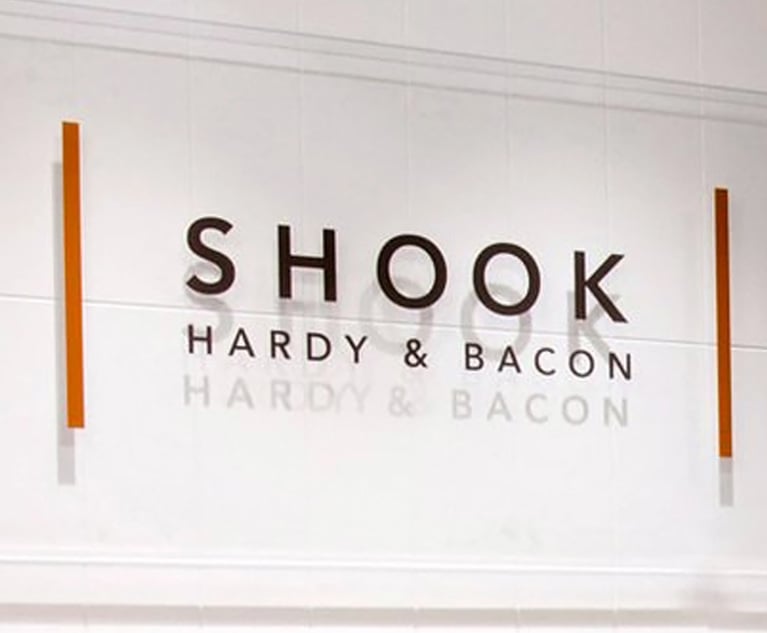 (Photo: Hyejin Kang/ Shutterstock)
(Photo: Hyejin Kang/ Shutterstock)Georgia Attorneys Share Their Experiences 'at the Corner of Law and Humanity'
The responses included two from African American lawyers who recalled white people assuming something about them from the color of their skin. In one case, the results were awkward and insulting; the other was more ominous, turning an already difficult situation into a bizarre nightmare.
June 15, 2020 at 06:32 PM
9 minute read
Spurred by continued demonstrations against racism and police violence, Law.com affiliate The Daily Report recently asked readers to share their stories "at the corner of law and humanity," where attorneys' trained logic met the powerful feelings prompted by these turbulent times.
The responses included two from African American lawyers who recalled white people assuming something about them from the color of their skin. In one case, the results were awkward and insulting; the other was more ominous, turning an already difficult situation into a bizarre nightmare.
Below, those stories bookend anecdotes from three white lawyers. One offered her conclusions about race gleaned from a decade of criminal defense practice, while another shared his lesson from a police encounter. The third lawyer observed how "nuanced racism" can affect whether someone gets a law firm job.
If these stories inspire you to share something with us about your experience, from any perspective, please let us know by emailing [email protected].
'Hey girl'
Leah Ward Sears of Smith, Gambrell & Russell was the first woman and second African American to join the Supreme Court of Georgia when Gov. Zell Miller appointed her in 1992.
 Leah Ward Sears (Photo: John Disney/ ALM)
Leah Ward Sears (Photo: John Disney/ ALM)
She shared a piece she wrote for the Wall Street Journal about several uncomfortable interactions she had with white women over the years. First, fresh out of law school, she was mistaken for a restroom attendant as she attended a function for her law firm at a private club in Atlanta. A decade later, by then a member of the Supreme Court, Sears was approached by an older woman at a cocktail party in Sea Island who said, "The next time I want you to make sure you put more ice in my drink."
Then, Sears wrote that, when she was chief justice, "I was walking with my children at yet another resort on the coast when a lady pulled over and hollered, 'Hey girl, where's the spa?' Stunned, I directed her to the wellness facility, but this time I was seething with anger because my children were embarrassed."
'Black men … [t]housands of them'
Molly Parmer, a criminal defense lawyer in Atlanta, wrote, "I'll defend anyone." In nearly 10 years she has defended police officers, lawyers, corporate executives, accused war criminals and accused members of drug cartels.
 Molly Hiland Parmer. (Courtesy photo)
Molly Hiland Parmer. (Courtesy photo)
"The vast majority of those I have defended have been black men," wrote Parmer. "Thousands of them were caught up in the system due to discriminatory police practices, unfair prosecutions, limited community resources, and the school-to-prison pipeline. Rather than a presumption of innocence, they had a presumption of guilt. Poverty, not a conviction, kept them in jail."
The system, she added, "functions exactly as designed. It's only broken if you think it's about creating a society of equality and justice and liberty and public safety. But if you actually think its purpose is controlling certain populations, oppressing certain people, conserving the hierarchies of wealth and power, then it's functioning quite well."
'The First Amendment? I don't give a shit'
Troy Hendrick, an Atlanta trial lawyer, recalled when he was a senior in college and a photographer for the school newspaper covering a fire that broke out across the street from his off-campus house.
This content has been archived. It is available through our partners, LexisNexis® and Bloomberg Law.
To view this content, please continue to their sites.
Not a Lexis Subscriber?
Subscribe Now
Not a Bloomberg Law Subscriber?
Subscribe Now
NOT FOR REPRINT
© 2025 ALM Global, LLC, All Rights Reserved. Request academic re-use from www.copyright.com. All other uses, submit a request to [email protected]. For more information visit Asset & Logo Licensing.
You Might Like
View All

Meet the Long Island Judge Tapped to Be US Attorney for Eastern District of New York
3 minute read
Appeals Court Rejects Trump Attempt to Delay Friday Sentencing
Law Firms Mentioned
Trending Stories
Who Got The Work
Michael G. Bongiorno, Andrew Scott Dulberg and Elizabeth E. Driscoll from Wilmer Cutler Pickering Hale and Dorr have stepped in to represent Symbotic Inc., an A.I.-enabled technology platform that focuses on increasing supply chain efficiency, and other defendants in a pending shareholder derivative lawsuit. The case, filed Oct. 2 in Massachusetts District Court by the Brown Law Firm on behalf of Stephen Austen, accuses certain officers and directors of misleading investors in regard to Symbotic's potential for margin growth by failing to disclose that the company was not equipped to timely deploy its systems or manage expenses through project delays. The case, assigned to U.S. District Judge Nathaniel M. Gorton, is 1:24-cv-12522, Austen v. Cohen et al.
Who Got The Work
Edmund Polubinski and Marie Killmond of Davis Polk & Wardwell have entered appearances for data platform software development company MongoDB and other defendants in a pending shareholder derivative lawsuit. The action, filed Oct. 7 in New York Southern District Court by the Brown Law Firm, accuses the company's directors and/or officers of falsely expressing confidence in the company’s restructuring of its sales incentive plan and downplaying the severity of decreases in its upfront commitments. The case is 1:24-cv-07594, Roy v. Ittycheria et al.
Who Got The Work
Amy O. Bruchs and Kurt F. Ellison of Michael Best & Friedrich have entered appearances for Epic Systems Corp. in a pending employment discrimination lawsuit. The suit was filed Sept. 7 in Wisconsin Western District Court by Levine Eisberner LLC and Siri & Glimstad on behalf of a project manager who claims that he was wrongfully terminated after applying for a religious exemption to the defendant's COVID-19 vaccine mandate. The case, assigned to U.S. Magistrate Judge Anita Marie Boor, is 3:24-cv-00630, Secker, Nathan v. Epic Systems Corporation.
Who Got The Work
David X. Sullivan, Thomas J. Finn and Gregory A. Hall from McCarter & English have entered appearances for Sunrun Installation Services in a pending civil rights lawsuit. The complaint was filed Sept. 4 in Connecticut District Court by attorney Robert M. Berke on behalf of former employee George Edward Steins, who was arrested and charged with employing an unregistered home improvement salesperson. The complaint alleges that had Sunrun informed the Connecticut Department of Consumer Protection that the plaintiff's employment had ended in 2017 and that he no longer held Sunrun's home improvement contractor license, he would not have been hit with charges, which were dismissed in May 2024. The case, assigned to U.S. District Judge Jeffrey A. Meyer, is 3:24-cv-01423, Steins v. Sunrun, Inc. et al.
Who Got The Work
Greenberg Traurig shareholder Joshua L. Raskin has entered an appearance for boohoo.com UK Ltd. in a pending patent infringement lawsuit. The suit, filed Sept. 3 in Texas Eastern District Court by Rozier Hardt McDonough on behalf of Alto Dynamics, asserts five patents related to an online shopping platform. The case, assigned to U.S. District Judge Rodney Gilstrap, is 2:24-cv-00719, Alto Dynamics, LLC v. boohoo.com UK Limited.
Featured Firms
Law Offices of Gary Martin Hays & Associates, P.C.
(470) 294-1674
Law Offices of Mark E. Salomone
(857) 444-6468
Smith & Hassler
(713) 739-1250









